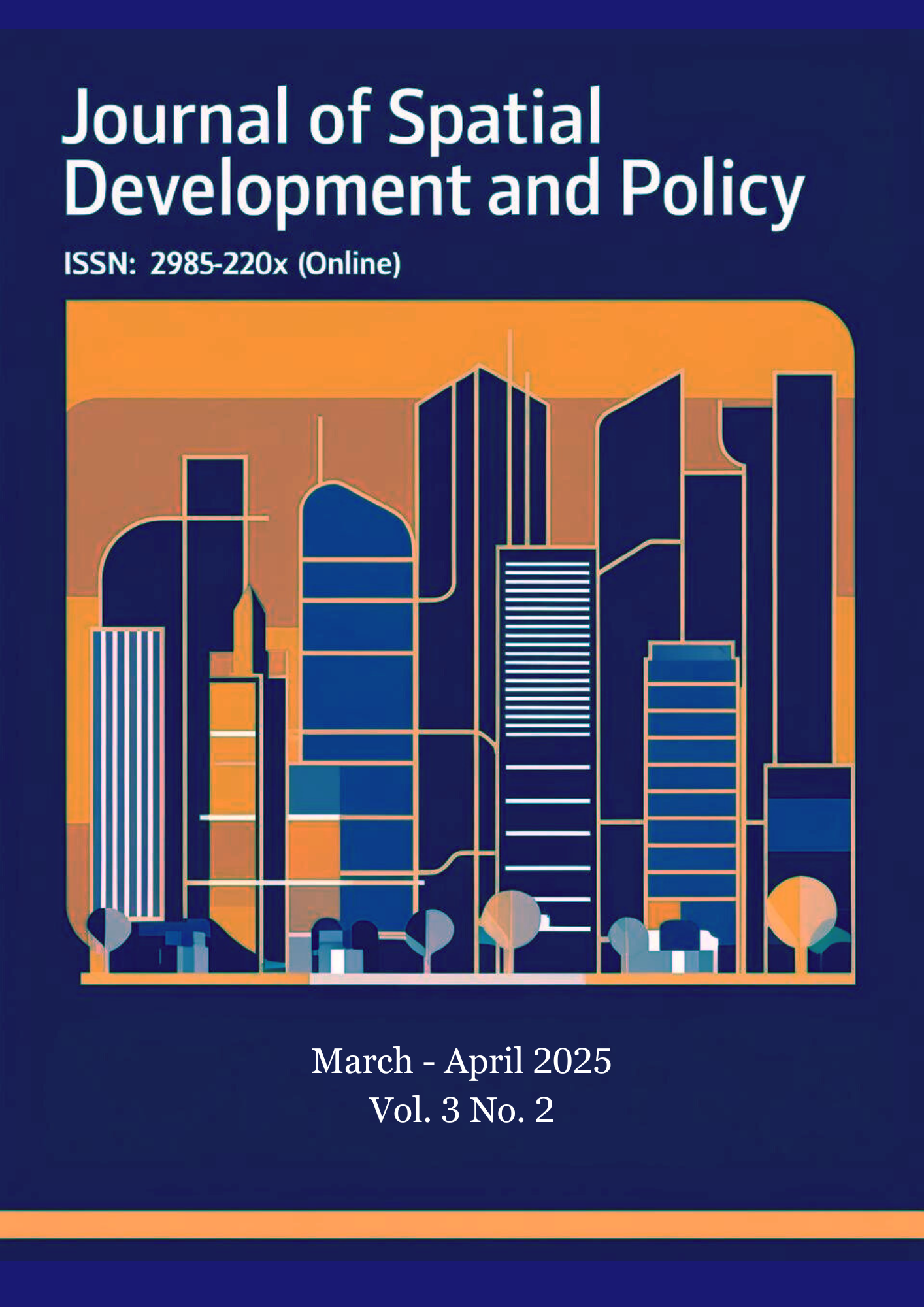Propose A Model for Promoting Sustainable Well-being in Thailand's Tourism Industry
Main Article Content
Abstract
This article aimed to study (1) the context and issues of sustainable well-being in tourism management dimensions, (2) propose a model for promoting sustainable well-being in Thailand's tourism industry. This qualitative research employed a multi-method approach, combining content analysis with connoisseurship, to gather and interpret data. The study was conducted between October 2024 and January 2025 with two groups of key informants: 12 university lecturers from state-supervised higher education institutions, and 5 strategic-level executives in health and service-related tourism businesses located in Bangkok. The result of the study found that: 1) Hotel businesses and event organizers prioritized creating impressive experiences by focusing on sustainable resource management through various standards, as well as emphasizing pollution reduction in service processes. Meanwhile, local tourism communities used cultural uniqueness as their selling point while considering environmental impacts simultaneously. 2) Sustainable tourism industry must consider three key dimensions: (1) Community collaboration by promoting community-based management and direct benefits, (2) Cultural presentation through cultural experiences, local cuisine, and traditional Thai medicine, and (3) Environmental conservation and use of eco-friendly materials by promoting low-carbon tourism, efficient resource utilization, and selection of biodegradable materials.
Article Details

This work is licensed under a Creative Commons Attribution-NonCommercial-NoDerivatives 4.0 International License.
References
การท่องเที่ยวแห่งประเทศไทย. (2565). Wellness Tourism by Numbers. สืบค้นจาก https://tatreviewmagazine.com/.
ระชานนท์ ทวีผล. (2563). การดำรงอยู่ของธุรกิจที่พักที่ไม่ใช่โรงแรมบนพื้นฐานแห่งธรรมาภิบาล กรณีศึกษาธุรกิจโฮสเทล ในเขตอำเภอหัวหิน จังหวัดประจวบคีรีขันธ์. วารสาร มทร. อีสาน ฉบับมนุษยศาสตร์และสังคมศาสตร์, 7(2) 16-35.
สุปชา เพชรโสม และ สุวารี นามวงค์. (2567). ความสัมพันธ์เชิงสาเหตุต่อกิจกรรมการท่องเที่ยวเชิงสุขภาพ ทัศนคติที่มีต่อกิจกรรมเพื่อสุขภาพ การคล้อยตามกลุ่มผ่านสื่อสังคมออนไลน์ ความพึงพอใจต่อกิจกรรมเพื่อสุขภาพ และความตั้งใจที่จะเข้าร่วมกิจกรรมเชิงสุขภาพกรณีศึกษากลุ่มชายฝั่งทะเลภาคตะวันตก. วารสารรัชต์ภาคย์, 18(60), 243-253.
Alamineh, G. A., Hussein, J. W., Mulu, Y. E., & Taddesse, B. (2023). The negative cultural impact of tourism and its implication on sustainable development in Amhara Regional State. Cogent Arts & Humanities, 10(1), 2224597.
Aytaş, G., Ergen, F. D., & Aytekin, E. (2024). Wellness Tourism After the Pandemic. In Future Tourism Trends Volume 1: Tourism in the Changing World (pp. 285-298). Leeds, England: Emerald Publishing Limited.
Bagheri, F., Guerreiro, M., Pinto, P., & Ghaderi, Z. (2024). From tourist experience to satisfaction and loyalty: Exploring the role of a sense of well-being. Journal of Travel Research, 63(8), 1989-2004.
Baloch, Q. B., Shah, S. N., Iqbal, N., Sheeraz, M., Asadullah, M., Mahar, S., & Khan, A. U. (2023). IImpact of tourism development upon environmental sustainability: a suggested framework for sustainable ecotourism. Environmental science and pollution research international, 30(3), 5917–5930.
Cristache, N., Murariu, S., & Chihaia, A. (2023). Changes in tourist behavior in the context of the covid-19 pandemic. Annals of the Academy of Romanian Scientists Series on Economy, Law and Sociology, 6, 106-124.
Dini, M., & Pencarelli, T. (2021). Wellness tourism and the components of its offer system: a holistic perspective. Tourism Review, 77(2), 394-412.
Drisko, J. W., & Maschi, T. (2016). Content analysis. New York: Oxford university press.
Filep, S., Moyle, B. D., & Skavronskaya, L. (2024). Tourist wellbeing: Re-thinking hedonic and eudaimonic dimensions. Journal of Hospitality & Tourism Research, 48(1), 184-193.
Gantait, A., Mathew, R., Chatterjee, P., & Singh, K. (2024). Community-Based Tourism as a Sustainable Direction for the Tourism Industry: Evidence from the Indian Sundarbans. In Interlinking SDGs and the Bottom-of-the-Pyramid Through Tourism (pp. 197-217). New York: IGI Global.
Global Wellness Institute. (2024). Wellness Tourism Initiative Trends for 2024. Retrieved from https://globalwellnessinstitute.org/global-wellness-institute-blog/2024/04/30/wellness-tourism-initiative-trends-for-2024/.
Guerra, R. J., Trentin, F., & Vila-Chã, C. (2022). New sustainable practices in health and wellness tourism destinations focused on the quality of life and wellbeing. PASOS Revista de Turismo y Patrimonio Cultural, 20(4), 871-883.
Handels, R. L., Wolfs, C. A., Aalten, P., Bossuyt, P. M., Joore, M. A., Leentjens, A. F., & Verhey, F. R. (2014). Optimizing the use of expert panel reference diagnoses in diagnostic studies of multidimensional syndromes. BMC neurology, 14, 1-9.
Huang, X., Wang, P., & Wu, L. (2024). Well-being through transformation: An integrative framework of transformative tourism experiences and hedonic versus eudaimonic well-being. Journal of Travel Research, 63(4), 974-994.
Indapurkar, K. (2024). From Temples to Tranquillity: The Role of Religious and Wellness Tourism in India's Sustainable Future. In Interlinking SDGs and the Bottom-of-the-Pyramid Through Tourism (pp. 218-246). Pennsylvania: IGI Global.
Kimunio, I., Nandelenga, M. W., & Makambi, S. (2024). Tourism Degrowth in the New Normal: Exploring the Impacts of COVID-19 on Sustainable and Equitable Tourism Development. In Tourist Behavior and the New Normal, Volume II: Implications for Sustainable Tourism Development (pp. 281-297). Cham: Springer Nature Switzerland.
Liu, L., Zhou, Y., & Sun, X. (2023). The impact of the wellness tourism experience on tourist well-being: The mediating role of tourist satisfaction. Sustainability, 15(3), 1872.
Młynkowiak-Stawarz, A. (2023). Do Polish tourists want wellbeing tourism? Preferences for wellbeing tourism versus the psychological wellbeing of individuals. E-mentor, 99(2), 56-68.
Segarra, E., Brito, L. M. Y., Guapi, F., & López, C. (2024). Impact of COVID-19 on tourism: An economic and social review. Green World Journal, 7(2), 149.
Tharikh, S., & Hamzah, S. (2020). Application of the Wellbeing Theory on Air Traffic Controllers: A Model on How to Flourish in Practice at the Workplace. The International Journal of Academic Research in Business and Social Sciences, 10(5), 522-532.
Thurmond, A.V. (2001). The Point of Triangulation. Journal of Nursing Scholarship, 33(3), 253-258.
Tsartas, P., Falaras, T., Giannopoulos, K., Papoutsakis, C., Paraskevopoulou, G., & Rachanioti, C. S. (2022). Respoguide: integrating sustainability and wellbeing in tourism through an innovative platform. In Handbook on Tourism, Public Health and Wellbeing (pp. 139-149). Northampton, Massachusetts: Edward Elgar Publishing.
Zaika, S., & Avriata, A. (2024). Analysis of the impact of the COVID-19 pandemic on the development of the international tourism market. International Science Journal of Management, Economics & Finance. 3(2), 56-68.

